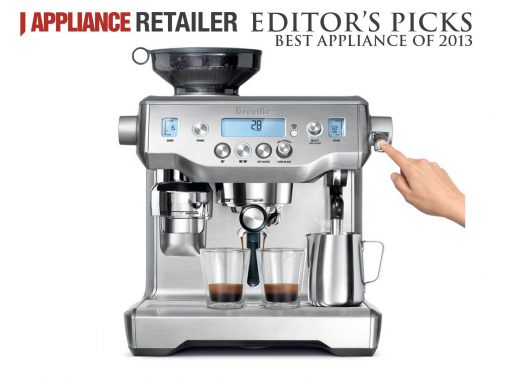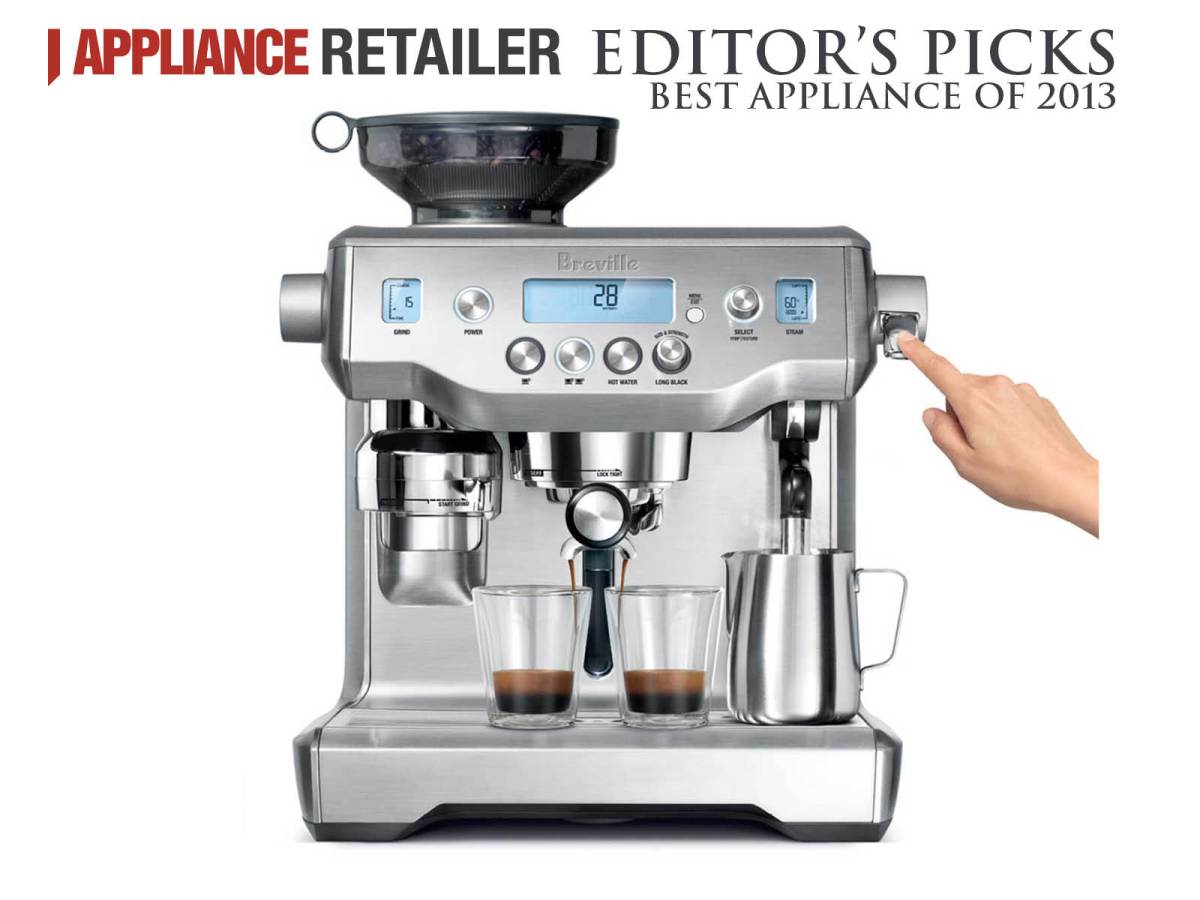As Christmas approaches, coffee machines of all shapes and sizes are expected to be big sellers in electrical retail stores — both as gifts and for those looking for an excuse to make a first-time purchase or an upgrade.
Appliance Retailer spoke to Tom Douch, Breville Australia’s category manager for beverage, about the strength of the coffee category, and what retailer’s should be doing to capitalise on sales.
The total coffee machine market is a $185 million segment; that’s 20 per cent of total small kitchen appliances. If coffee machine sales don’t represent at least a fifth of a retailer’s smalls business, then this could present a growth opportunity.
Because coffee is such a highly researched category, in order to be the destination store for coffee machines in the local area, retailers really do need to be able to ‘talk coffee’ with customers. The category is full of jargon, and savvy sales people can take advantage of this knowledge to gain credibility and help customers narrow down their choices.
Breville anticipates the current mix shift in the coffee machine market to continue; with one twist — the emergence of the ‘automatic manual’ sub-category. As per last year, entry level manual machines below $500 will continue to lose share to capsule machines. Whilst there has been a recent explosion of entry level (below $100) capsule machines being sold in the grocery channel, this is actually a good thing for electrical retailers. These consumers are largely jar coffee drinks who are graduating to a coffee machine for the first time. Once they’ve bought into the convenience but have been underwhelmed by the trade off in taste, Breville is confident that they’ll trade up to a better quality solution.
Breville is also optimistic that its continued focus on innovation in premium manual machines above $500 will translate into increased average sell prices for retail partners. As coffee appreciation increases in Australia, shoppers are willing to trade up to premium appliances with great reviews.
Finally, Breville expects that the rapid decline in popularity of fully automatic machines will continue. Breville analysed the premium espresso market at price points above the Breville Dual Boiler (BES900) and identified that in the past 12 months, what was a $40 million segment, has declined by over 30 per cent.
When Breville asked consumers what they’d improve in a fully automatic machine, they felt they were making a trade-off, between push button convenience and the taste, texture and appearance of milk-based coffees. Unlike Europe, Breville knows that the vast majority of Australians prefer their coffee with milk. This is why the texture and presentation of the milk was so important to them. Consumers informed Breville that what they enjoyed most about making a coffee at home was the latte art. But they found that getting the texture of the milk right was really tricky, even with a milk thermometer.
Coffee is one category that can deliver compound interest to sales and a loyal customer base if retailers get it right. Because Australians have such an emotional connection with coffee, if retailers can position their store as the coffee authority in the local area and steer purchase recommendations to the right models, they’re likely to attract repeat business and referrals.
 Breville has launched into what it calls a “new category” with The Oracle (BES980, RRP $2,499), an automatic manual hybrid machine that allows users to automate the grinding, dosing and tamping of their coffee shot, texture milk to a precise temperature and get consistent results each time.
Breville has launched into what it calls a “new category” with The Oracle (BES980, RRP $2,499), an automatic manual hybrid machine that allows users to automate the grinding, dosing and tamping of their coffee shot, texture milk to a precise temperature and get consistent results each time.

